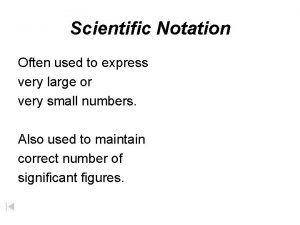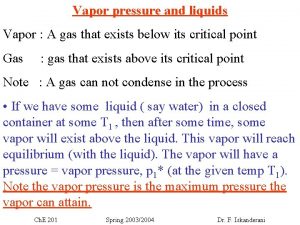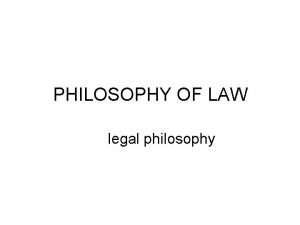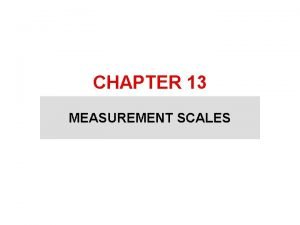Attitude toward law is very revealing It shows



























- Slides: 27

Attitude toward law is very revealing. It shows the person’s ability to conform, his values, and his respect. Such is also true in religion, directly considered, as we shall see. Notwithstanding, there is an anti-law movement underway, seen in every sector of our culture.

Be it immediately known that the scriptures condemn lawlessness: “Whosoever is born of God doth not commit sin; for his seed remaineth in him: and he cannot sin, because he is born of God” (I John 3: 9, see v. 8).

“Anomia lit. , ‘lawlessness’ (a, negative, nomos, ‘law’), is used in a way which indicates the meaning as being lawlessness or wickedness. Its usual rendering in the NT is ‘iniquity, ’ which lit. means unrighteousness…. It is used (a) of iniquity in general…(twice); "iniquity" (‘unrighteousness…, ’ ‘lawlessness’ (AV, ‘iniquity’); …(twice), RV, ‘(doeth). . . Lawlessness’ and ‘lawlessness’ (AV, ‘transgresseth the law’ and ‘trangression of the law’” (W. E. Vine).

Lawlessness involves attitude. James taught: “For whosoever shall keep the whole law, and yet offend in one point, he is guilty of all” (Jas. 2: 10). James is describing one who keeps what he wants and then flagrantly rejects other parts (see context).

The reality of sin necessarily presupposes the existence of law, because without the breaking of law, sin does not exist. Law, indeed, is part of the system of grace (Gal. 6: 2). We are, though, under the "perfect law of liberty" (Jas. 1: 25). Albeit, there are commands that must be respected and obeyed, there is the matter of authority to which we must submit (Heb. 5: 8, 9, Col. 3: 17).

“Every one that doeth sin doeth also lawlessness; and sin is lawlessness” (I John 3: 4, ASV).

The Greek anomia is found fourteen times in the Greek New Testament. Hence, a relevant study. The “grace only” and “no law” movement stands diametrically opposed to what we shall see taught under “lawlessness. ”

v There is one law giver. 1. Jas 4: 12.

v Man must keep God’s laws. 1. 2 Tim. 2: 5.

v Law must be lawfully used. 1. I Tim. 1: 8.

v The perfect law of liberty. 1. Jas. 1: 25.

Without law, there is total chaos. There must be law, respect for law, and adverse consequences when there is disregard for law.

Jesus hated iniquity and/but loved righteousness – Hebrews 1: 9.

Jesus is the greatest exemplar the world has ever known (John 15: 12). In fact, He is our example (I Pet. 2: 21, Heb. 12: 2). Consider Jesus' mindset toward lawlessness: "Thou hast loved righteousness, and hated iniquity; therefore God, even thy God, hath anointed thee with the oil of gladness above thy fellows" (Heb. 1: 9). The word "iniquity, " that which Jesus hated, is our word anomia, lawlessness.

Religionists rejected on Judgment Day due to lawlessness (anomia) – Matt. 7: 23.

"Not every one that saith unto me, Lord, shall enter into the kingdom of heaven; but he that doeth the will of my Father which is in heaven. Many will say to me in that day, Lord, have we not prophesied in thy name? and in thy name have cast out devils? and in thy name done many wonderful works? And then will I profess unto them, I never knew you: depart from me, ye that work iniquity ("lawlessness, dm)" (Matt. 7: 21 -23).

. Workers of iniquity bundled and burned at time of Judgment – Matt. 13: 41.

Regarding the parable of the tares, Jesus taught the following (notice the matter of "iniquity" or anomia, lawlessness). "The Son of man shall send forth his angels, and they shall gather out of his kingdom all things that offend, and them which do iniquity; And shall cast them into a furnace of fire: there shall be wailing and gnashing of teeth" (Matt. 13: 41, 42).

Lawlessness cancels out love – Matt. 24: 12. (“What we need is more ‘love’ and less emphasis on ‘law. ’”)

Many of the advocates of antinomianism, lawlessness, want to be viewed as loving and kind. Rather, their appeal to love is simply a means of manipulation and deprecation of those standing for the truth. "Those who insist on truth are not loving, " say they. Consider Jesus' teaching and the relationship between "iniquity" (lawlessness) and “love. ” "And many false prophets shall rise, and shall deceive many. And because iniquity shall abound, the love of many shall wax cold" (Matt. 24: 11 -12).

The mystery of iniquity was at work in Paul’s day – 2 Thes. 2: 7 (notice the “lawless one, ” v. 8, ASV).

There was a great apostasy or falling away prophesied in scripture (cp. Acts 20: 28 ff. , I Tim. 4: 1 -4). This "man of sin" being thus described in the text of 2 Thessalonians 2 arrogates to himself that which only belongs to God so that he, "…as God sitteth in the temple of God, shewing himself that he is God" (vs. 3, 4). Catholicism, the apostasy that occurred, is a system of lawlessness and rejection of the authority and law of God.

No fellowship between righteousness and iniquity (lawlessness) – 2 Cor. 6: 14.

When some think of "fellowship, " they think of eating food and drinking drink (the social gospel). However, the idea of fellowship in the scriptures pertains to jointly performing the will or law of God. "Be ye not unequally yoked together with unbelievers: for what fellowship hath righteousness with unrighteousness? and what communion hath light with darkness? And what concord hath Christ with Belial? or what part hath he that believeth with an infidel? (2 Cor. 6: 14, 15. )

Lawlessness is associated with hypocrisy – Matt. 23: 28.

Those who "contend for the faith once delivered to the saints" are often painted as hypocrites. Yet, hypocrisy is biblically associated with disregard for law. Speaking contextually of many of the Pharisees of his day, Jesus described them as follow: "Even so ye also outwardly appear righteous unto men, but within ye are full of hypocrisy and iniquity" (Matt. 23: 28). The word "iniquity" is anomia or lawlessness. While they outwardly expressed desire to conform to law, they were hypocrites and did not care about law.

“For this is the love of God, that we keep his commandments: and his commandments are not grievous” (I John 5: 3, notice “love” and “commandments” blend and “love” prompts keeping “commandments”).
 Compare torvald and nora's attitude towards money
Compare torvald and nora's attitude towards money It is the authors attitude towards the subject
It is the authors attitude towards the subject Great gatsby activities
Great gatsby activities Metamorphosis activity
Metamorphosis activity Fernando's favorable attitude toward capital
Fernando's favorable attitude toward capital What is the attitude of the narrator toward rachel/rachelle
What is the attitude of the narrator toward rachel/rachelle The ocean floor revealing plate tectonics
The ocean floor revealing plate tectonics A revealing introduction to hidden markov models
A revealing introduction to hidden markov models Tru face revealing gel
Tru face revealing gel Yehuda lindell
Yehuda lindell A revealing introduction to hidden markov models
A revealing introduction to hidden markov models Order revealing encryption
Order revealing encryption Figure 10
Figure 10 Used to express very large or very small numbers
Used to express very large or very small numbers Fewfewfewf
Fewfewfewf Is a very shallow skillet with very short sloping sides
Is a very shallow skillet with very short sloping sides Very little very few
Very little very few When god shows up he shows off
When god shows up he shows off Newton's first law and second law and third law
Newton's first law and second law and third law Si unit of newton's first law
Si unit of newton's first law V=k/p
V=k/p How to calculate boyle's law
How to calculate boyle's law Raoult's law and dalton's law
Raoult's law and dalton's law What is a civil law
What is a civil law Programl
Programl Positive law vs natural law
Positive law vs natural law Positive law vs natural law
Positive law vs natural law Law of segregation vs law of independent assortment
Law of segregation vs law of independent assortment


















































